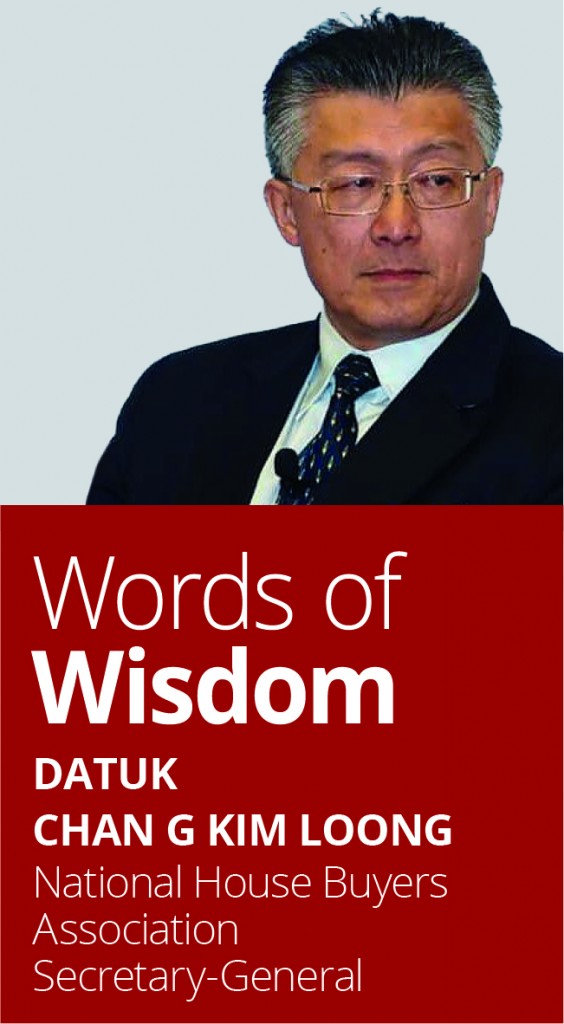Publish tribunal decisions for sake of transparency
Contributed by Datuk Chang Kim Loong
THE Strata Management Tribunal was created following the Strata Management Act 2013 (SMA) which came into force on June 1, 2015. This quasi-judicial body is authorised to decide on disputes or complaints concerning the performance of duties and exercise of powers conferred or imposed by the Act.
Parties bound by the SMA include proprietors, developers, management corporations, joint management bodies, property managers and commissioners of buildings. Simply put, the tribunal is an avenue for stakeholders or affected persons under the SMA to take when there are discrepancies concerning the affairs of stratified properties.
Malaysia inherited a common law system from its former colonial masters. This means that decisions handed down by the higher courts and other judicial institutions in Malaysia will form a body of case laws that are binding on the lower courts.
An advantage of the common law system is that it promotes consistency of decisions.
Grounds of decision
In the context of the SMA, the grounds of awards handed down by the tribunal can serve as an invaluable source of reference for the public.
In fact, Section 117(2) of the SMA makes it mandatory for the tribunal to provide reasons for its awards.
This provision is similar to Section 16AA of the Housing Development (Control & Licensing) Act 1966 in relation to the tribunal for homebuyer claims and Section 114 of the Consumer Protection Act 1999 about consumer claims.
The courts have consistently held that this requirement to give reason is mandatory. Failure to do so will render the award illegal. Alternatively, the aggrieved party may apply for a mandamus from the courts to compel the tribunal to give its reasons.
Section 117 falls short of stating whether the reasons shall be given in writing or orally. The courts have therefore taken a narrow approach by accepting oral reasons from the tribunal. In other words, a written reason for any award is optional.
Consequently, the reasons supporting the awards become shrouded in secrecy or make them incoherent to the public who may not understand the legal language when delivered orally. Bear in mind that lawyers are not permitted at tribunal proceedings unless a case involves complex issues of law.
While the acceptance of oral reasons appears to be motivated by the need to dispose of disputes quickly, there could be instances to prepare written reasons which will be available to the public later. For example, publishing the tribunal’s grounds of decision on the website of the Housing and Local Government Ministry (KPKT).
Lack of written reasons
The National House Buyers Association (HBA) believes that the lack of written reasons for awards deprives the public of proper guidance on matters related to the SMA and causes the same mistakes to be repeated in a vicious cycle of ignorance or misunderstanding.
This could also hamper the development of strata laws since there is no known published body of awards by the tribunal for comparison.
The HBA reiterates its call for the publication of awards and their reasons, at least for cases that will impact the future application of laws.
Firstly, the SMA has been around since mid-2015 and strata development has become more complex with the advent of mixed or phased developments and projects that incorporate public infrastructure such as the Mass Rapid Transit system. Also, many lacunas require the clarification and interpretation of the courts and the tribunal.
Written reasons for awards will enable the public to further understand the SMA. As the law becomes clearer and more settled with time, there may be fewer disputes. This will also speed up the decision-making process at the tribunal because the body of cases will serve as a useful reference.
Secondly, making the written decisions available will instil public confidence in the awards granted by the tribunal. For instance, the judiciary regularly publishes the grounds of judgment on its official website to promote transparency and allow the public to understand the rationale behind the decisions.
Education and empowerment
Most claims filed with the tribunal are practical in nature revolving around issues such as the recovery of maintenance charges, disputes on the validity of meetings, squabbles among committee members and inter-floor leakage problems.
While these types of cases are perceived as standard claims that rarely involve complex arguments on strata laws, the tribunal should seriously consider publishing its reasons for the main purpose of making the awards transparent.
This may shed light on the application of various provisions in the SMA for the benefit of the public who may be unit owners or committee members sitting in a joint management body, management corporation or Sub-MC.
There should also be a common position adopted by each tribunal for similar facts to formulate a consistent policy.
The HBA has been encouraging the ministry to be accountable by publishing the tribunal’s written reasons on the KPKT website, perhaps under a separate section called Past Decisions or SMT Resources as a source of reference to the public.
It could help pre-empt any potential disputes and motivate parties to settle if the same facts from an earlier published case are already known to all concerned.
HBA urges the ministry to consider its proposal to encourage the Strata Management Tribunal chairman to publish their awards/ decision/ grounds with the intention of achieving TEAM (acronym for):
T – Transparency in reasons.
E – Empowering stakeholders, industry players and the public.
A – Making the appointed presidents accountable for their reasons.
M – Creating materials as a relevant source of reference and development of laws.
Source: StarProperty.my

















POST YOUR COMMENTS